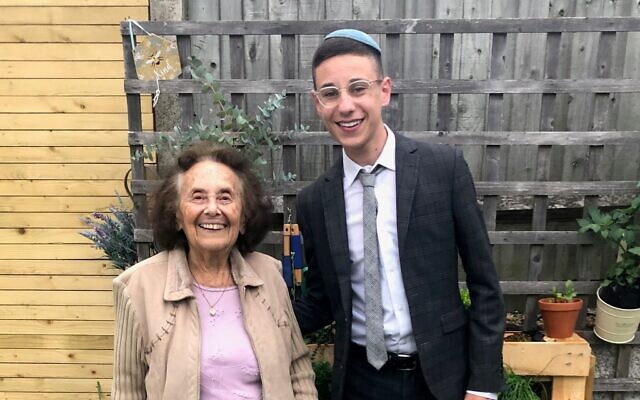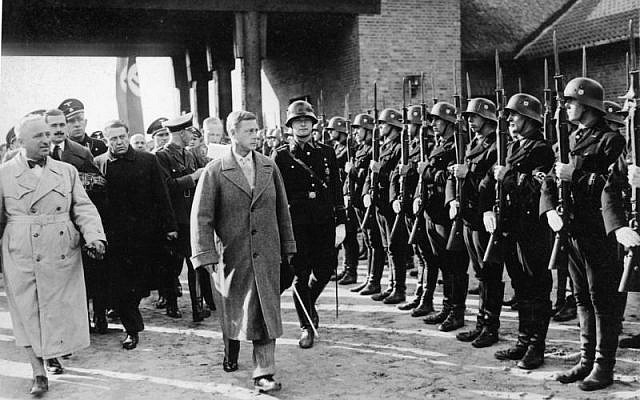The Royal Family’s 800-year relationship with Britain’s Jews, in 7 historical tidbits
As the UK’s chief rabbi and Israel’s president attend King Charles’ coronation this Shabbat, a look at the ties that have historically bound the Crown to its Jewish subjects
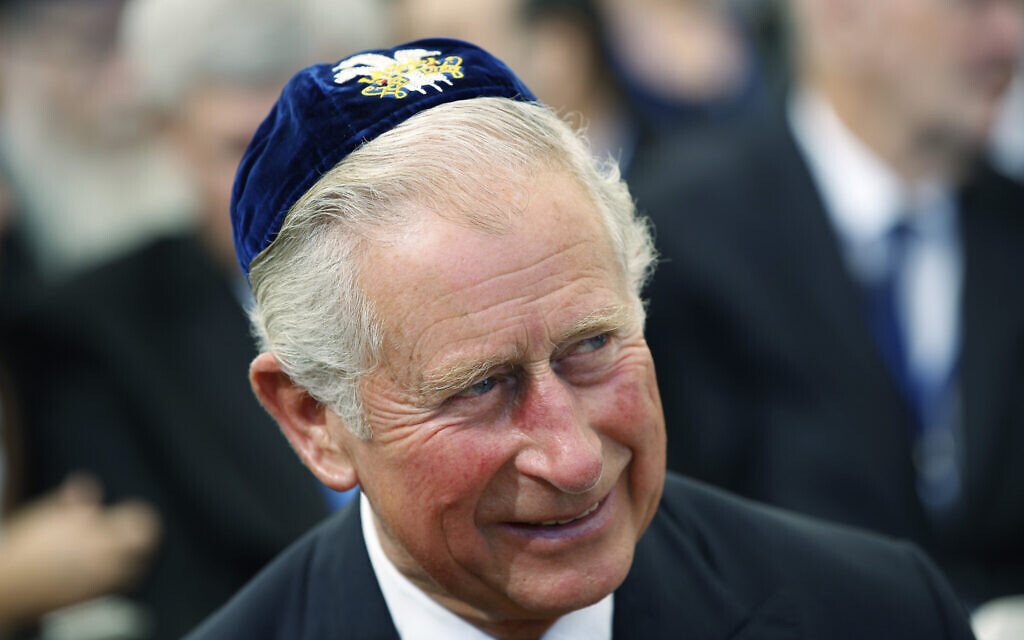
LONDON — When Queen Elizabeth II’s seven-decade-long reign ended with her death at 96 last September, her son, Charles, immediately became King.
On Saturday, however, King Charles III and his wife, Queen Camilla, will be formally crowned at Westminster Abbey.
He’ll be the 40th monarch to be crowned at the abbey in a line that stretches back 900 years to William the Conqueror’s coronation on Christmas Day 1066.
And Britain will do what it arguably still does best: put on a diamond-drenched, ermine-laden and golden-hued royal show topped with all the pageantry and ceremony, pomp and circumstance and ancient traditions it can muster.
It’s a Christian service – largely unchanged for the past 1,000 years – in which the King will take the oath, be “anointed, blessed and consecrated,” and have St. Edward’s Crown, which was made for King Charles II in 1661, placed upon his head.
But there’ll also be some Jewish details — such as Chief Rabbi Ephraim Mirvis participating in the ceremony at Westminster Abbey on Shabbat morning, a Jewish tailoring firm providing uniforms, and three Jewish composers penning new music in the king’s honor — befitting the community’s close and comfortable relationship with the Royal Family.
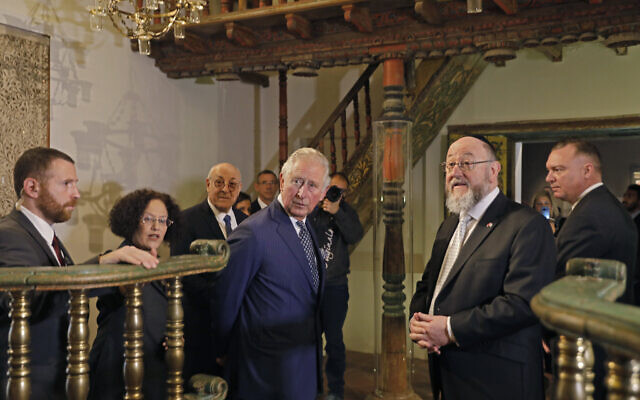
Britain’s Jews have ties to the Crown dating back to the Royal Family’s earliest years. Here are seven historical tidbits — not all of them rosy — linking the kingdom’s Jewish subjects to its monarchy.
1. Charles in Israel
While his mother, the late Queen Elizabeth II, never visited Israel (the monarch’s overseas visits take place on the advice of the government), Charles paid his first-ever official visit to the Jewish state in 2020. By this point in the late Queen’s seven-decades-long reign, her heir had taken on the burden of overseas travel.
It wasn’t Charles’s first visit to Israel; he had made private visits to attend the funerals of Yitzhak Rabin and Shimon Peres. However, it was the new heir to the throne, Charles’ eldest son, William, who blazed the royal trail to Israel. In 2018, William, who now has the title of Prince of Wales, paid the first-ever official visit to Israel by a member of the Royal Family.
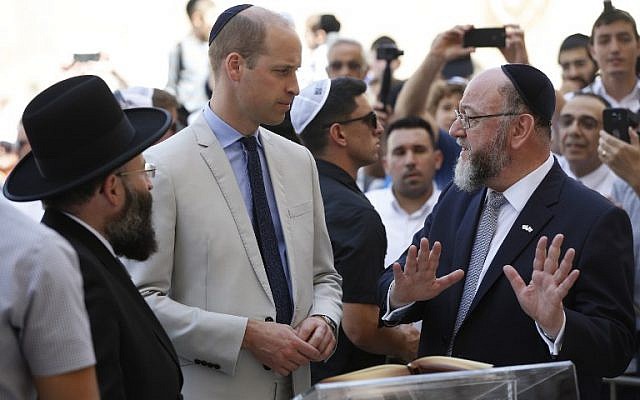
2. Opponent of hate
It was fitting that Charles’s first official visit to Israel was to attend the World Holocaust Forum. The King has been a longstanding and vocal opponent of antisemitism, as well as involving himself in Holocaust commemoration and education as an active patron of the Holocaust Memorial Day Trust (a role he took over from the late Queen in 2016). In January, Charles issued his first message since becoming King on his mother’s death marking the UK’s annual Holocaust Memorial Day. The message spoke about his many meetings with Holocaust survivors.
“Over many years, I have been deeply touched to have met so many Holocaust survivors, all of them extraordinary people who faced unimaginable horror,” he said. “Their strength and determination to share their testimonies is an inspiration to us all. These are people who, despite having suffered so much, have gone on to live the most incredible, flourishing lives in the United Kingdom, and made a remarkable contribution to British society and public life.”
To mark Holocaust Memorial Day last year, Charles unveiled seven portraits of survivors he had commissioned. At the unveiling ceremony, 98-year-old Lily Ebert told him: “Meeting you, it is for everyone who lost their lives.” Touching her shoulder, Charles replied: “But it is a greater privilege for me.”
3. Running in the family
Charles’s interest in the Holocaust is personal. In 1993, his grandmother, Princess Alice of Battenberg, was awarded the title of “Righteous Among the Nations” by Yad Vashem. Alice, the mother of Charles’s father, the late Duke of Edinburgh, was a member of the Greek royal family who was living in Athens when the Nazis occupied the city during World War II. Alice subsequently sheltered Rachel Cohen, widow of Haimaki Cohen, a former member of Parliament and ally of the royal family, and two of her children, at her royal residence.
According to Yad Vashem: “There were times when the Germans became suspicious, and Princess Alice was even interviewed by the Gestapo. Using her deafness, she pretended not to understand their questions until they left her alone.”
“She saved the whole family,” Evy Cohen, Cohen’s granddaughter later said. “Clearly I wouldn’t be alive, I wouldn’t be here, I wouldn’t be born if it hadn’t been for her.”
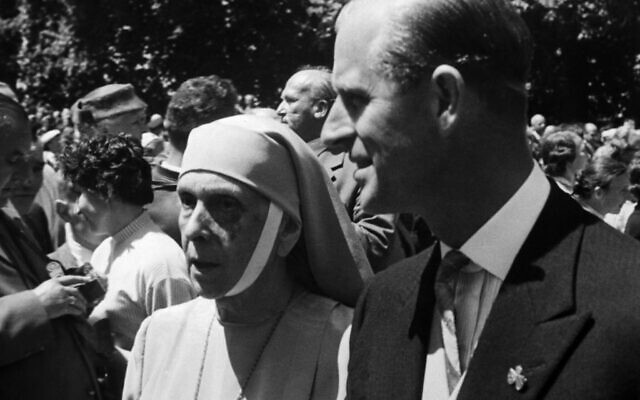
In 1994, the Duke of Edinburgh traveled to Jerusalem to plant a tree in his mother’s honor.
“I suspect that it never occurred to her that her action was in any way special,” he said at the time. “She would have considered it to be a perfectly natural human reaction to fellow beings in distress.”
Alice, who later founded a nursing order of Greek Orthodox nuns, is buried on the Mount of Olives. Like his father, Charles has visited Alice’s gravesite and he’s spoken of his “immense pride” in her actions.
4. Oil from the Holy Land
The anointing oil, or “chrism,” that will be used during the coronation ceremony has traveled from afar. Created from olives harvested from two groves on the Mount of Olives, it was consecrated in a ceremony at Jerusalem’s Church of the Holy Sepulchre in March conducted by the Patriarch of Jerusalem, His Beatitude Patriarch Theophilos III, and the Anglican Archbishop in Jerusalem, The Most Reverend Hosam Naoum.
“The olives were pressed just outside Bethlehem. The oil has been perfumed with essential oils — sesame, rose, jasmine, cinnamon, neroli, benzoin and amber — as well as orange blossom,” Buckingham Palace said in a statement. The palace added that the formula has been used for hundreds of years, a point emphasized at the time of the consecration ceremony by Welby.
“This demonstrates the deep historic link between the Coronation, the Bible and the Holy Land,” the archbishop said. “From ancient kings through to the present day, monarchs have been anointed with oil from this sacred place.”
At The Church of the Holy Sepulchre in Jerusalem, the Chrism oil which will be used to anoint The King at the Coronation in May has been consecrated by The Patriarch of Jerusalem and the Anglican Archbishop in Jerusalem.
Advertisement[1/3] pic.twitter.com/oKn88FpEdh
— The Royal Family (@RoyalFamily) March 3, 2023
But the relationship between Britain’s Jews and the monarchy has historically not always been so harmonious or without incident.
5. Nazi links
Charles’s great-uncle, Edward VIII, abdicated the throne in 1936 when the government wouldn’t allow him to marry twice-divorced American Wallis Simpson. But Edward, who then moved to France, married his lover, and became Duke of Windsor, has also long been the subject of rumor and speculation about his alleged Nazi sympathies. Indeed, a documentary aired on British television last year claimed he passed information to the Nazis that helped the fall of France in 1940 and encouraged Germany to bomb Britain into submission.
Whatever the truth of these allegations, the Nazis – who are thought to have planned to offer Edward the throne had they successfully invaded the UK in 1940 – had good reason to see the couple as potential fellow travelers. In the early summer of 1933, for instance, Edward confided in the Kaiser’s grandson that it was “no business of ours to interfere in Germany’s internal affairs either re the Jews or re anything else.”
Months after abandoning his crown and country, the Duke paid a controversial 12-day visit to the Reich where he and his wife were feted by the Nazis. And as late as 1940, Edward was publicly calling Hitler “a very great man.”
That view certainly wasn’t one shared by his brother, King George VI and his wife, Queen Elizabeth (Charles’s grandparents). While their children, the late Queen Elizabeth II and her sister, Princess Margaret, were, like many others, evacuated from the capital, the couple insisted on remaining with their subjects in London during the worst of the Blitz.
6. Pogrom at the Coronation
At the coronation of Richard I in 1189, Jewish leaders attempting to bring gifts for the new monarch were attacked. An orgy of violence followed which saw Jews fleeing to the Tower of London to seek shelter. The 12th-century chronicler and diplomat Roger of Howden recorded that only those Jews who hid in the royal citadel or in the homes of friends escaped death.
“The crusade fervor of the late 1180s was likely the driving factor in the massacres, combining with the already present anti-Jewish prejudice, economic resentment and opposition to the crown’s relationship with the Jews,” historian Dr. Rory MacLellan said recently.
7. A royal expulsion and a republican return
Legally, Jews in Medieval England were viewed as the property of the Crown. Seen as a valuable cash cow, royal officials were cynically charged with protecting Jews from the mob – while also ensuring they paid up arbitrary taxes as and when the king needed them.
This uneasy relationship came to a close in 1290 when King Edward I signed the Edict of Expulsion. Financially drained by exploitative taxation, the community’s ability to contribute to the cash-strapped monarch’s coffers had been severely dented. Edward thus ordered that all Jews in England – some 3,000 in all – either convert or go into exile abroad.
Jews didn’t return to England until the 1650s when they were invited to resettle by parliamentary leader Oliver Cromwell during England’s brief – and unhappy – flirtation with republicanism.
There's no paywall on The Times of Israel, but the journalism we do is costly. As an independent news organization, we are in no way influenced by political or business interests. We rely on readers like you to support our fact-based coverage of Israel and the Jewish world. If you appreciate the integrity of this type of journalism, please join the ToI Community.

We’re really pleased that you’ve read X Times of Israel articles in the past month.
That’s why we started the Times of Israel eleven years ago - to provide discerning readers like you with must-read coverage of Israel and the Jewish world.
So now we have a request. Unlike other news outlets, we haven’t put up a paywall. But as the journalism we do is costly, we invite readers for whom The Times of Israel has become important to help support our work by joining The Times of Israel Community.
For as little as $6 a month you can help support our quality journalism while enjoying The Times of Israel AD-FREE, as well as accessing exclusive content available only to Times of Israel Community members.
Thank you,
David Horovitz, Founding Editor of The Times of Israel

